Toronto International Film Festival 2017 Report Part 2: The Sacrifices You Make…
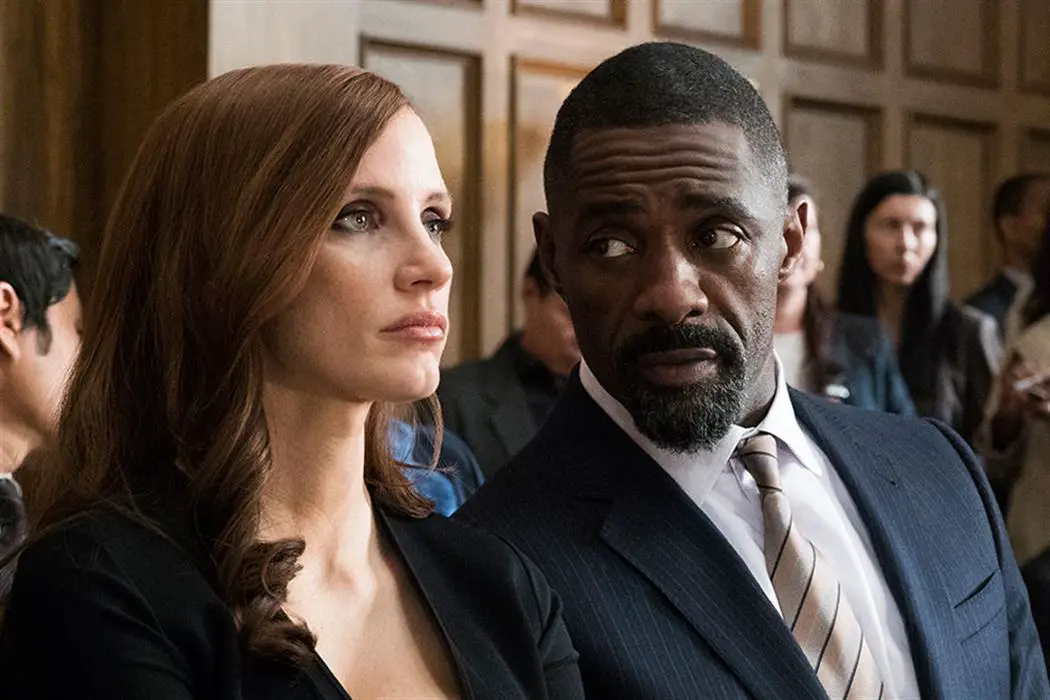
Tomas is a chronic cineaste who studied English literature in…
Day Three of the festival was, thus far, my longest. Five films that stretched through the day’s entirety, with very little opportunity to grab a quick bite to eat in between. This is the disadvantage of doing the press run: unless you’re OK with skipping a lot of films, you more or less have to sacrifice some of your self-care routine in order to make it into the screenings you want. By this time, all the international and local press had descended; Scotiabank was operating at peak capacity, its lobby almost unnavigable with the bodies and bodies of sleep-deprived writers, film lovers, and industry folks being herded into lineups, or just standing anywhere that was convenient. People ordering food and drinks, people chatting excitedly into cellphones (or staring down into them), people milling to and fro with the restlessness of packhorses—honestly, it’s quite the sight.
The best I could do with my free time was to grab a quick Starbucks coffee, check my emails, and get in line for whatever was on my schedule. Some with more time would grab a seat at the small lounge at the back (one could also purchase alcohol there—I was tempted, but I didn’t want the risk of losing my sobriety at the expense of viewing the films objectively and with a clear mind); others would traverse back down the Mega Escalator and find a nearby pub or café to start hammering out reviews. These people have run the gauntlet many times before. They’re old hands, masters of the art of surviving in darkened rooms and claustrophobic spaces. I was left to my own devices, ensuring I always stayed as alert as possible, and also consuming a small snack whenever I felt the pangs of hunger. It was the best I could do.
First year on the press run. Films and films galore. Can you believe that it’s actually been fun for me?
Thelma (Joachim Trier)
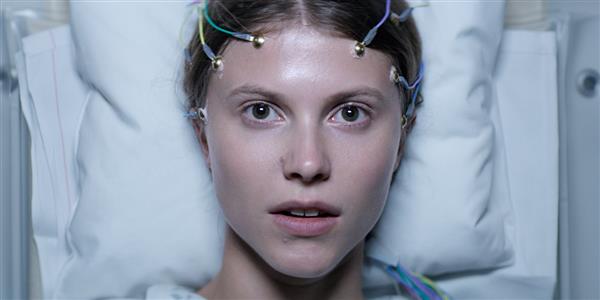
Thelma is something of a departure for Norwegian director Joachim Trier. His short oeuvre (which includes Oslo, August 31st and Louder than Bombs) is very much invested in telling sincere stories of people teetering on or past the edge of loss, observing their melancholic interactions with a reverberant and sympathetic hush in tone. His cinema is quietly, unobtrusively profound, exacting in its unhurriedness and always challenging in various, exciting ways.
This film marks the first time the director has anchored a film from an entirely female perspective, and it also sees him begin to dabble in fantastical quarters. Here we have a teenage girl, the daughter of a devoutly Christian couple, who one day begins having seizure-like convulsions after moving to a new school. On top of these occurrences, Thelma (Eili Harboe) begins falling for a friendly girl named Anja (Kaya Wilkins), who reciprocates her feelings in turn. The more Thelma’s desire for Anja grows, however, the more prominent her psychokinetic powers become—until she discovers that she can literally will things out of existence if she so wishes.
Other reviewers have naturally compared this to Brian De Palma’s Carrie, considering both stories revolve around supernaturally-gifted women whose power becomes destructive when left unchecked. There is also the religious element, of course, though here is handled in a more subdued manner, not figuring into events until much later in the film. The key difference between the two is that Thelma possesses a hopeful message about accepting one’s sexual identity regardless of one’s religious convictions, and Trier’s treatment of Harboe’s character is beautifully complex, ensuring that her supernatural abilities never overshadow her gently intelligent and attentive personality.
With demonic symbolism and visions of glowing, translucent skin, the psychological horror in this film lies not so much in gruesome imagery and jump scares (though there are a few); instead, it is the manifestation of a pious mind in constant rebellion with unconventional bodily desires. Evil appears because evil is believed. Sin is exteriorized because sin is inculcated. Thelma’s trajectory, then, is towards liberation from insidious forms of intolerance, removing the designation of “forbidden” from unions that do not lie in heteronormative structures. When this happens, we, too, are left exultant.
Thelma is a fantastic addition to Trier’s growing body of work, possessing a strong, cohesive formalism and a compelling take on feminine sexuality that breeds in the intersections of desire and devotion. I’m not always fully convinced that the story requires so much coming and going in its last half, and the introduction of one character yields too much unnecessary exposition for my taste, but aside from these minor complaints, Thelma (to my mind) is a very accomplished achievement that I’d gladly introduce to anyone willing to take the leap into Trier’s compositionally rigorous domain.
Molly’s Game (Aaron Sorkin)
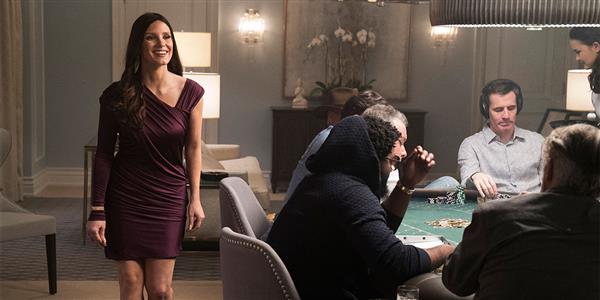
We’ve known for years now that Aaron Sorkin is a wizard with words. With Molly’s Game, he enters the directorial realm, and all in all it’s a pretty solid piece of entertainment, proving that Sorkin’s craft is not limited to pages of script. Telling the true story of gambling entrepreneur Molly Bloom, who ran underground poker rings in Hollywood and New York before being indicted on federal racketeering charges, it’s the kind of safe, crowd-pleasing thriller that you consume with the certainty that you’re getting your money’s worth.
Sorkin endeavors to give us as complete a picture of Bloom as he can, starting with her brief career as a moguls skier—a period in her life that helped instil in her a rabid determination to succeed through hard work and perseverance. When a serious injury forced her to seek out a different vocation, she landed on hosting gambling rings purely by chance. And yet, as we glean from the film, it was a career perfectly suited to her disposition, and her moral centre is only tarnished after long bouts of stress, sleeplessness and constant drug use. Before her lapses in judgment, she ran things aboveboard and with an instinctive prowess, legally luring men to empty their pockets and inversing a traditionally patriarchal realm of power.
As Bloom, Jessica Chastain is cool, calm and in control of her surroundings, metamorphosing into a Siren-like presence with a deep command of Sorkin’s glittery monologues and put-downs. While I wouldn’t call this an entirely challenging performance—particularly since she herself possesses an authoritative kind of power similar to Molly’s—it’s exactly the kind of meaty role that she can excel in, and does. It also helps that she has another talented individual alongside her in Idris Elba, who plays Bloom’s oft-exasperated attorney. There’s a magnetic chemistry whenever the two share the screen; one scene in particular is just the two of them ratatatting monologues in Elba’s office, each trying to outfox the other. Sorkin gives both of them the material, and they run with it. It’s as simple as that.
Sorkin’s direction (at this stage, at least) is fine, if too eager to prove itself energetic and edgy. Several sequences at the film’s start are furiously snapped into place, as though the rhythm of dealing cards on baize needs to be exactly replicated to achieve some kind of thematic effect. It doesn’t, but Sorkin goes all in anyway. Fortunately, it’s not too distracting to be of fault, and I will say that he compensates by filming the poker scenes as though they really did have the high stakes of the real games. You can almost feel the sweat in the air and the dampness of the chips as they are fondled by pallid fingers.
However, there is one unforgivable fault that nearly runs the film into the ground. It involves Molly’s father (Kevin Costner), a psychiatrist by trade, giving his daughter an impromptu therapy session on a park bench. For some unfathomable reason, Sorkin is not content to let a woman run the entire show, and allows a man to step in and give her a good bout of mansplaining so that her achievements are aligned with a patriarchal pathology. Watching this unfold, I was embarrassed for Sorkin. How could he so clumsily bungle the denouement like that? But then again, the ending of Steve Jobs also suffered from being half-baked, so perhaps that is now the Achilles heel he must conquer.
Though the ending is poor, Molly’s Game is not a wash because of it. Chastain and Elba are successes, and the script is, for the most part, an engaging confection. It’s not Sorkin working at optimal levels, nor is it likely to be seen as a masterpiece in the near future. Yet, for a night out at the theatre, it mostly does the trick.
The Florida Project (Sean Baker)

In my last dispatch, I mentioned that I was initially shut out of The Florida Project; luckily, an extra Press & Industry screening was added the next day—a screening I took advantage of immediately.
Almost as soon as the film starts, we are treated to the sight of two children hocking loogies at a neighbor’s car while perched atop the balcony of a two-story motel complex painted a whimsical lavender (and much of the film is graded in a similarly purplish hue, perhaps as a way of subconsciously reminding the viewer time and again of this strange, fairy tale-esque setting). Just kids being kids, one is likely to think. The only difference here is that they are allowed to live lives of their own devising because their parents are hardly parents at all, and living outdoors is far more enticing than being cooped up in a stuffy room.
Sean Baker’s The Florida Project is, in a sense, a two-way mirror. We see mostly everything through the vantage of little Moonee (Brooklynn Kimberly Prince), whose exploits range from bumming spare change from strangers for ice cream, to accidentally setting an abandoned condo on fire. She is a feisty fireball, verbally sassy and endlessly curious about her unique world. She is also too young to understand the finer picture: that she lives in destitution; that she has a mother (Bria Vinaite) who casually and carelessly steps outside the law in order to keep making ends meet, and that the world is not the self-contained oyster that she thinks it is.
As Moonee looks out into the horizon, where helicopters perpetually whir and the sun sets over Disneyland and the gauche tourist traps in the surrounding area, we observe her from the other side of the mirror—the key word being observe. Baker is not here to didactically teach us a lesson about socioeconomic inequality. He is not here to place moral judgments on the ragtag group of characters he presents to us. We are free to think as we choose, but his métier is to be real with us, and I’m glad he is. It makes the film much more fecund with possibility, allowing us to experience a taste of childhood nostalgia at its most wondrous without losing awareness of the costs. The film scampers between the uninhibited and the catastrophic, the glorious and the grotesque, navigating very difficult terrain without fetishizing the squalor and sordidness. It is simply the story about a little girl in worse straits than most, discovering hidden beauty with a heart as big as the motel she lives in.
Baker does not make this an altogether happy experience. For instance, the ending itself, while cutesy on the surface, is actually very melancholic in tone. There is darkness lingering on the outskirts that he does not wish us to forget, but neither does he force it down our throats like the worst examples of misery porn. Instead, there are figures of hope and good counsel, best exemplified by Bobby the motel owner (Willem Dafoe). Under his tough exterior lies a fatherly compassion for his little tenants, and the small ways in which he bonds with Moonee and her friends lend The Florida Project the empathy it needs to work. Through Bobby, we find a like-minded surrogate to both hold these characters in check, and to also give them the chances that their society would otherwise not give them.
The more I think back on it, the more I love this film. It lights us onto an authentic perspective, never shying away from the grime and sorrow of its world, but never making it the film’s unyielding focal point, either. I suppose it’s easy to be skeptical of Baker’s method, since he so willingly tackles touchy subjects and gives them a colorful backdrop on which to run against. Yet I would much rather have him handle these sensitive areas than someone who, while meaning well, goes for the clunky, miserablist route. I wish to dream in purple, dear reader. Not black.
Motorrad (Vicente Amorim)
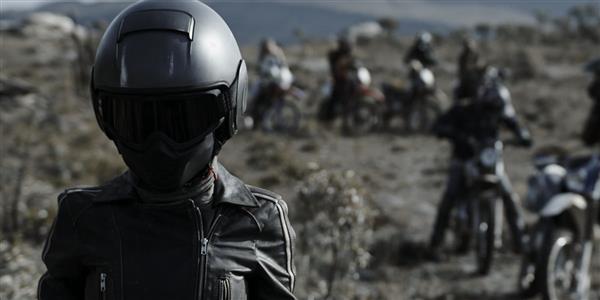
Speaking of black, my next film was a far-cry from the multi-toned hues of Sean Baker’s world. Instead it was a washed-out, monochromatic eyesore, riddled with fifty shades of grey without ever looking attractive or, if you want to take it a step further, sexy. Yes, friends, Motorrad is motorbad… and please feel free to groan at that, because I groaned in the same way while watching the film. I could easily fill this review with even worse puns because they’d all be more exciting than the 92 minutes I had with this.
Austrian-Brazilian director Vicente Amorim probably wanted to riff off of George Miller’s Mad Max: Fury Road here, taking the high-octane thrills of dirt biking and combining it with a deadly game of cat and mouse, where only the cleverest can outsmart the raging villains pursing them. The story seems to be allegorical in nature, following a gang of motorcyclists who literally take apart an old stone wall in order to venture into the Brazilian badlands for an afternoon of fun in the sun. Except, they’re not alone. Enter, stage left: another gang of bikers clad all in black, wielding machetes and looking to spill some blood. Or a lot of it.
I only saw Motorrad because I was shut out of Samuel Maoz’s Foxtrot, which had just screened to rave reviews in Venice and was subsequently a new must-see for many. Looking back, I wonder if I should have taken a dinner break, instead, because I really don’t have many good things to say about this one. As aforementioned, the color palette is drab, making the film uninteresting to look at visually. The look of a film is always an important part of the viewing process, so naturally if the film looks aesthetically poor, it will not go over well with anyone having to sit with it for an extended period.
Another element that works against the film is its pacing, for the plot takes a while to get started, and by the time it does, you couldn’t care less about the outcome. Nor do its attempts at world-building succeed, because Amorim’s characters are an underwritten lot. Apart from the leads, the supporting cast lack any sense of individuality, so when they inevitably start dying, one doesn’t end up caring. And even the leads are nothing special. One of them is Guilherme Prates, who gives an unconvincing performance if I ever saw one. At times he shows no emotion during moments where emotion is needed, he begins smiling at bizarre intervals, irregardless of the mayhem happening offscreen. The result was that he kept taking me out of the film when I was already half out of it to begin with.
But perhaps the worst thing about this film is how uninvolving the thrills actually are. Once the first death occurs, the others are, for the most part, more of the same: violent, messy, and over-the-top, but filmed with such bland detachment that nothing registers but apathy. There are long scenes of chases and near-escapes, none of them conceived or executed with the requisite urgency. And there’s a lull in the middle when some characters hide out in an abandoned house for a night, doing very little except peeking through windows or shivering in the dark. It’s all ends up being so formulaic and dull that I was almost ready to walkout. The only reason I stayed until the end was the completionist in me.
If there is any merit here (and, trust me, I had to think for a while), it’s in the allegorical interpretation. Now, what it is, I can’t be sure. My best guess is that this is about the self-entitled ignorance and boobery of millennials, who go to great lengths to get the most rewards by doing the least amount of work possible. Hence, why they create a gaping hole in an ancient relic because there’s no way of getting around it and they don’t want their oh-so-awesome biking adventure to go to waste. I guess we have the last laugh in the end, when their impatience ends up costing them their lives. It’s also possible that the murderous bikers are phantom manifestations of their collective guilt after their recklessness. It’s a more interesting way of viewing this than the literal lens, and I would encourage anyone viewing this to interpret it differently.
If this were more artfully constructed, I’d write much more on possible interpretations, but at this point, I’d much rather write about a film that I liked, so let’s move on, shall we?
Mom and Dad (Brian Taylor)
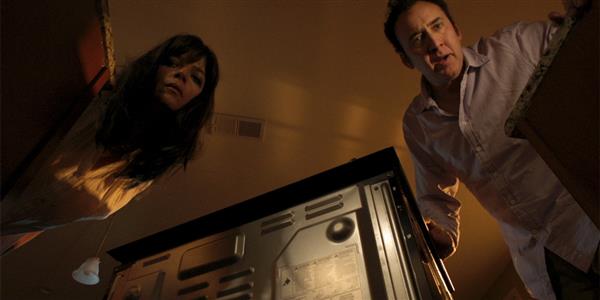
TIFF is a social affair, and every year I try to bring a family member or two to share in the experience. For Brian Taylor’s Mom and Dad, I brought along my brother. He likes horror and comedy films; Mom and Dad was billed as horror-comedy, so it was a no-brainer. I also wanted to experience a Midnight Madness screening, which is something I’ve never done before due to the fact I live outside the city and have to rely on public transit to get back home. These screenings run late and end late, and in past years I turned them down because I was not interested in coming home at 3AM in the morning. I decided to make an exception this year. It seemed a little embarrassing that, as someone who has been TIFFing since 2011, I’d never done Midnight Madness.
(Midnight Madness, by the way, is probably TIFF’s most popular programme for younger attendees. Anything that would be regarded as an entertaining horror or thriller film is scheduled to play at the Ryerson Theatre around midnight every night of the festival’s duration. As such, the crowds these films attract are a special subculture in and of themselves, notoriously rambunctious and rowdy when the time calls for it. They also have a penchant for bopping plastic beach balls around—and probably other stuff, too.)
So we bit the bullet. After Motorrad, I met my brother at the subway station closest to Ryerson, went out for a quick bite to eat (I hadn’t eaten for hours), and then lined up for what was quite the entertaining experience. First off: the crowd was as energetic as anticipated, greeting the head programmer like an old friend and having a blast with the commercial package that plays before every film. At this point, I was as tired as someone who had run ten miles, but the sheer excitement from my fellow festival goers perked me back up—as did the short that played before the feature.
Directed by Robin Comisar, the short is called Good Choice, and it’s based around a recreation of an old Red Lobster commercial from the ‘90s. The ad plays on an endless loop, with each new playback offering up something slightly new and strange. The inimitable Carrie Coon stars as a “patron” of the restaurant who orders the shrimp special from her waiter—and that’s all I will say, lest I spoil anything. But it does descend into a wackiness similar to Mom and Dad’s, which is why I assume they were paired together. Good stuff, and it gave me a good laugh.
Now, Mom and Dad. I was expecting this to be a decent crowdpleaser, considering Taylor’s specialty lies in such a territory. And when he admitted to the audience during the intro that the film had “mental issues,” I assumed it was just going to be crazy in that way most horror-comedies are: violent and ridiculous. I think Taylor undersold this, though. Mom and Dad is much crazier than it sounds, spiraling into complete chaos by its conclusion. Not at all in a bad way, either. In fact, I laughed at a steady rate throughout, and flat-out giggled by the end.
It’s probably best not to know too much about this one going in, for when it opens in the vein of a ‘70s genre piece, with rainbow-tinted title credits backed to what I’m 99% sure is a Dusty Springfield track, it’s clear that this particular avenue is going to be a hoax—or, at the very least, an ironic sendup to an era that is truly bygone. After all, the last time I saw a title sequence like that, I was watching Peter Strickland’s The Duke of Burgundy, which was all about sensuality and gauzy torpor in a long lost dreamscape. This, on the other hand, has as much torpor as the Autobahn, and there are very few dreams to speak of.
Instead, Taylor is as gung-ho as he’s ever been, smash-cutting to high heaven and putting in as many WTF moments as he possibly can to skewer the wholesome image of white, cookie-cutter, middle-class America that he begins with. The clipped, chipper style serves the film well, because the main conceit comes at us fast and furiously, with only just enough time to introduce the family at the centre of the action. Nicolas Cage and Selma Blair start off as parents disillusioned and frustrated by their lives and careers; their kids, played by Anne Winters and Zackary Arthur, are typically unappreciative youngsters. When the twist kicks in, Cage and Blair finally get a chance to shine in the spotlight—and boy do they shine.
Cage (who attended the screening, and loudly hooted with laughter several times during the film, much to the audience’s delight) is in his element here, hamming it up like it’s the last film he’ll ever do. He gets to do a few angry monologues, smashes up a pool table while singing “The Hokey Pokey,” promotes the SAWZALL reciprocating saw… it’s like everything you could ask for from zany Cage, and who doesn’t love zany Cage? That’s not to say Blair isn’t great, too. Her role is much less extroverted, yet the comedic chops are there—even down to the tiniest of details, such as when she casually picks up a meat cleaver towards the end of the film. Somehow just the sight of her fingering it approvingly is enough to get the belly laughs rolling, and together she and Cage bring us the goods in supersized quantities.
Mom and Dad has nothing new to say about our dead-eyed materialism and the whitewashed suburbias that sow the seeds of discontent and ennui, but I really don’t think it cares. Like any good horror film, its main priority is to entertain the viewer, and to take them to higher planes of consciousness, where primal fears and unnatural happenings work into their very fibres. This it does, only it emphasizes the comedy more than the fear. Either way, it works. It does the trick. The audience lapped it up like ambrosia, my brother enjoyed it, and we went home contented (although, due to the time, we had no choice but to skip the Q&A).
Toronto International Film Festival
Next time: films from Martin McDonagh and Andrew Haigh (I promise), plus new Bruno Dumont, Richard Eyre and a few up-and-comers. TIFF may have already ended by the time of this article’s publication, but I’ve got much more coverage in store.
Have you ever gone to midnight screenings of horror or cult films? If so, which ones, and what were the experiences like? Let us know in the comments below!
The Toronto International Film Festival ran from September 7th to the 17th.
Does content like this matter to you?
Become a Member and support film journalism. Unlock access to all of Film Inquiry`s great articles. Join a community of like-minded readers who are passionate about cinema - get access to our private members Network, give back to independent filmmakers, and more.
Tomas is a chronic cineaste who studied English literature in university (in both the undergraduate and graduate levels), and hopes to pursue a career in writing. His passion for film began in earnest at the beginning of the 2010s, and since then he's been reveling at the vast horizons of the cinematic landscape like a kid at the proverbial candy store.













